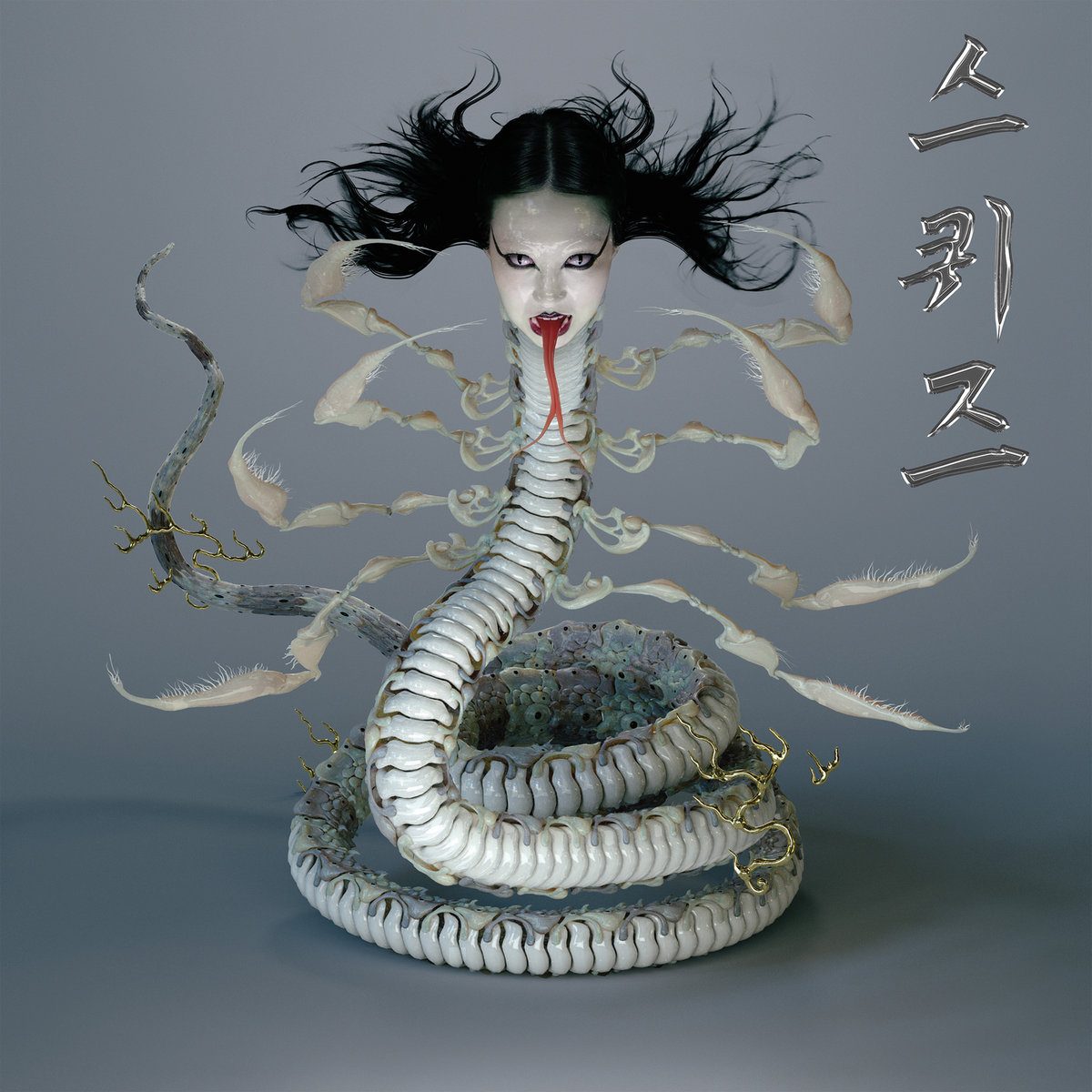Given her sprawling session work for indie royalty and penchant for sidestepping dull interview decorum, Sasami Ashworth is the epitome of larger than life. It’s quite flummoxing how such a big booming personality debuted with a surprisingly introverted, sometimes unfinished-sounding pop record. 2019’s SASAMI summoned a gauzy, but understatedly great concoction of indie rock, shoegaze and noise pop. Songs like “Morning Comes” and the Arthur Russell-esque “Turned Out I Was Everyone” linger like intimate, solitary reflections. Meanwhile, her shows were the exact opposite: volatile, primordial and impulsive.
I recall describing SASAMI’s lyrics on her debut as “a snake eating its own tail”. Well then, on the quite aptly titled successor Squeeze, Sasami is decidedly less opaque. I mean, she literally turned herself into a fork-tongued serpent-creature that embodies ‘outward scream’ with an infectious glee. I had to somehow think about the fighting game Mortal Kombat 3, which included Animalities, a new brand of gruesome finishing move that turned characters into their ‘spirit animal’.
It seems Sasami’s spirit animal is the Nure-onna, a vampiric Japanese folk deity that serves as the avatar for Squeeze. Though the trend of scary-looking creatures being humanized seems fairly recent, the Nure-onna is actually a super old example of a righteous monster: one who spares the innocent and preys on the, well, not-so-innocent.
Accordingly, album opener “Skin A Rat” rudely about-faces childlike voices (it’s important to note that Sasami teaches music to first graders, a job that inspires her to embrace her own inner child) into a scorching squall of drums and guitars. It’s a transformation that immediately reminds of those phantasmagorical, feverish illustrations depicted in those iconic heavy metal magazines. It’s definitely not the type of heaviness that feels dour and defeatist: Sasami finds bubbly catharsis in the more cartoonish horror elements of the genre.
Squeeze is delightfully contrarian and irreverent in its breadth of influences, veering from nu-metal flirtations to a world-worn heartland rocker like “The Greatest”. This isn’t like a Mr Bungle record either, though: there is nothing exhibitionist about Sasami’s genre-hopping tendencies. The songs all have a strong emotional anchor that seems deliberate and carefully mulled-over. As a classically trained musician, Sasami fully understands how the subtext of, for example, 80s pop balladry and industrial, can serve her own backstory.
On the somnambulistic dungeon crawler “Say It”, Sasami demands an audience for truth like ripping off a bandaid from a breathing, festering wound. “Call Me Home”, from a production standpoint, is one of the record’s most addicting songs: the ease with which Sasami shapeshifts from gloomy synth pop, bittersweet folk to gaudy, serrated-edged arena-rock that wouldn’t be out of place on an AWOLNATION record is quite astounding. The song seems to allude to an affair, and seeking out comforts in the gray areas where love oozes through: “Little bit of a bad thing never hurt anyone / But too much of a good thing / Is like a hand on your neck.”
Sasami jumps back into the fracas with the scandalous “Need It To Work”, channeling a frantic paranoia through its hellish noise stabs: in some ways more reminiscent of The Icarus Line or The Jesus Lizard than classic heavy metal. “Tried To Understand” once again flips the script with a more grounded place, the kind of gem you hear on some kind of roadside dive bar. To once again bring up Sasami’s debut LP, where reality and fantasy seem to occupy the same liminal space; on Squeeze, these two worlds feel like separate more autonomous universes to explore her more complex feelings. The more flamboyant heavy tracks are the dark oceanic depths where inner rage and frustration can have their day, whereas the more rootsy song-based tracks embody a gasp for air to the surface.
The press release for Squeeze carves out a fair chunk about Sasami’s family heritage from her mother’s side; she is a descendant of the Zainichi, a group ethnic Korean citizens oppressed during the Japanese occupation between 1910 and 1945, and generations later, are still experiencing trauma and disenfranchisement. It’s a bit of a doozy to figure out where this story of displaced past fits into the narrative of these songs, though the fantasy elements of Squeeze appear to make them implicit.
The notion of fluidity feels very present on this album: Sasami is using the full range of her sonic cunning to make musical extremes seem part of the same ecosystem: rage and joy aren’t treated as stark opposites, but as two sides of the same coin. On the canyoning, Weyes Blood-sounding brooder “Not A Love Song”, she seems to find peace within her place in a corrupted world, realising the illusion that its violence inherent can be captured or neutered. Squeeze opts to bathe and contort in it with visceral theatricality.

